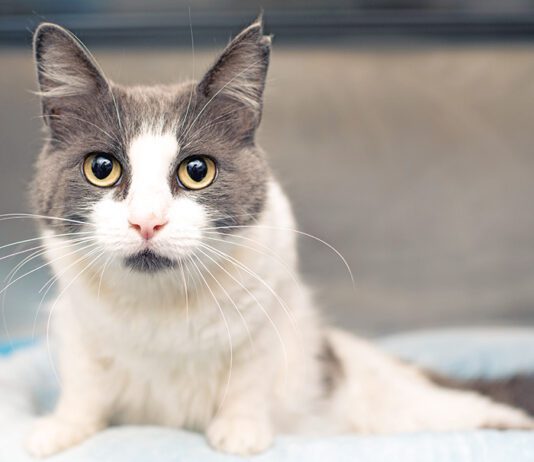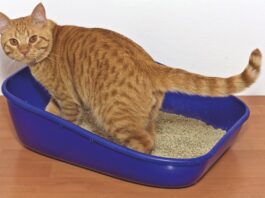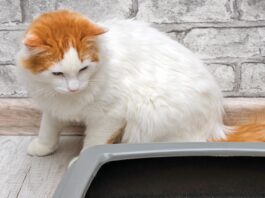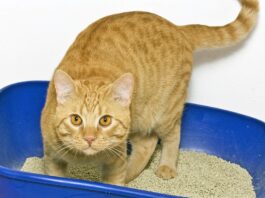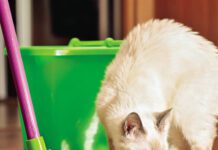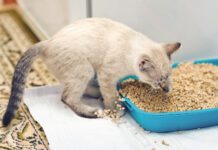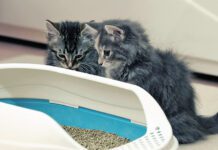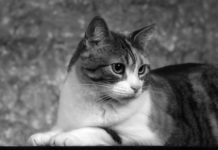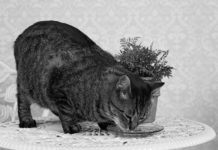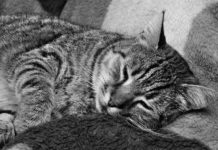Considering Clumping Litter?
There are a lot of cat litters out there, and deciding which to use starts with whether you—and your cat—prefer clumping or non-clumping litter.
This...
Considering Clumping Litter?
There are a lot of cat litters out there, and deciding which to use starts with whether you—and your cat—prefer clumping or non-clumping litter.
This...
Fecal Incontinence in Cats
Cleaning up after your cat is part of the deal you made when you brought him home. You do it out of love and...
Reduce Litter Tracking
Cat litter belongs in the litterbox, not scattered across the floor of your house. While it is impossible to eliminate all litter tracking, you...
Ask Dr. K: Prefers Fabric Over Litter
Q: My stepdaughter is having a problem with her 7-month-old kitten who is inappropriately eliminating outside of her litterbox when any material/fabric is around. She...
When Your Cat Avoids the Litterbox
Cats who stop using the litterbox are often experiencing pain. It could be upon urination, caused by a bladder infection or urinary crystals/stones. If...
Litter-Box Avoidance
Q I thought cats were always clean, which is why I chose a feline companion over a dog. I didnt want to deal with I have to go out at all hours of the day and night. But my new kitten says no way to the litter box. She will dig in it and play in it, but she otherwise doesnt use the box. She just seems to quickly hunt down a spot and goes.…
Ask Elizabeth: May 2017
About a year ago, he started to leave feces in non-litter box areas. While he still used the litter box, he would also leave feces right next to the box and also in an area by the front door.
An Anonymous Grant to Evaluate GI Diseases
A grant from anonymous donors in memory of their cat, Speckles, will support feline research to distinguish between gastrointestinal disease caused by inflammatory bowel disease (IBD) and lymphoma. The project will assess fecal bacteria and if significant difference is found, it may lead to a less invasive, more accurate diagnosis.
When to Seek Treatment for Constipation
Cats typically defecate one to three times a day, depending in part on the food they eat. Constipation - an inability to routinely and easily produce stool - is a fairly common feline disorder, says Meredith L. Miller, DVM, ACVIM, a lecturer in small animal medicine at Cornell University College of Veterinary Medicine.
20 Inspirational Ideas for Cat Owners
At the close of each year, do you find yourself writing a list of ambitious resolutions to eat healthier and exercise more? Perhaps you decide to eat more kale and spend more time at yoga and less lounging on the couch. We often craft New Years resolutions with good intentions but rarely fully achieve them.
When Seniors Lose Bladder Control
If your cat is more than 10 years of age, and you see him arising from a nap in a puddle of urine or with a moist rear, he could have age-related urinary incontinence. The problem, frequently occurring in senior and geriatric cats, has several causes.It often results from urinary bladder or sphincter problems, says Leni K. Kaplan, DVM, MS, a lecturer in the Community Practice Service at Cornell University College of Veterinary Medicine. However, incontinence can also be related to anything obstructing urine outflow, such as a tumor or stone. The bladder may then over-distend, and the cat may leak if he remains in one place for a while.

